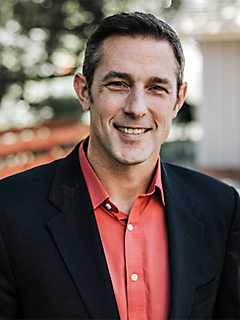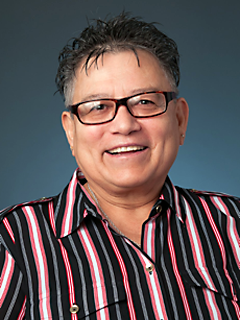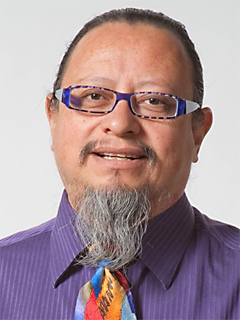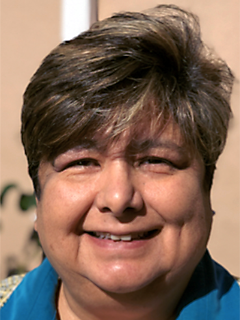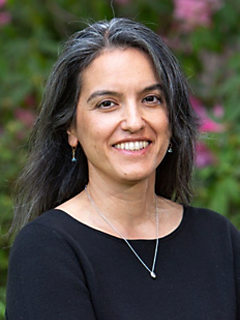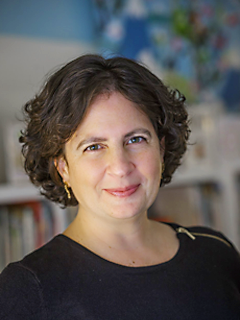NCSM Bold Leadership Summit – Major Speakers
|
|
Mike Flynn is the director of Mathematics Leadership Programs at Mount Holyoke College, where he runs the Master of Arts in Teaching Mathematics program and leads a wide variety of professional learning opportunities for teachers, teacher-leaders, coaches, administrators, and staff-developers. Mike travels across the country and around the world to work with schools, districts, and organizations that are interested in advancing the learning and teaching of mathematics. He also speaks at major conferences.
Mike is also the author of Beyond Answers: Exploring Mathematical Practices with Young Children published by Stenhouse Publishing. This book is designed to support elementary teachers that are looking to shift their practice to engage their students in meaningful mathematical experiences rather than just answer-getting exercises.
Prior to this work Mike taught second grade at the William E. Norris Elementary School in Southampton, MA for 14 years. He was named the Massachusetts Teacher of the Year in 2008 and was a 2010 recipient of the Presidential Award for Excellence in Mathematics Teaching. He tweets at @MikeFlynn55
|
|
|
Emma Treviño is currently working with the University of California at Riverside as a Collaborative Researcher on a project titled, “Improving the Implementation of Rigorous Instructional Materials in Middle Grades Mathematics: Developing a System of Practical Measures and Routines.” She works with a group of district mathematic specialists in San Francisco providing assistance as they help district teachers improve their practices. Previous to this position she was the Project Manager of the implementation of Common Core State Standards for Mathematics for San Francisco Unified School District. Responsibilities included ensuring the coherence design and implementation of mathematics professional development for the district.
She received both a B.S. and M.S. in Mathematics and Education from Texas A&M University, Kingsville. She taught mathematics for 21 years prior to becoming a Mathematics Specialist for Austin ISD where she worked with K-12 teachers. In, 2001, she worked with the University of Texas at Austin as a Mathematics Program Coordinator and a Supervisor of Mathematics Programs. She assisted district leaders and teachers on the development and dissemination of Common Core State Standards for Mathematics. She has extensive experience in the areas of mathematics standards, curriculum, and assessment and has provided technical assistance to States and Districts.
Emma believes, helping teachers create an effective successful classroom will ultimately create students that will flourish. To support these efforts she continues to actively help teachers develop a classroom where students understand, explain and question mathematics.
Harold Asturias is the director of the Center for Mathematics Excellence and Equity (CeMEE) at the Lawrence Hall of Science; a science center located at the University of California, Berkeley. Before that, he was the Deputy Director of the Mathematics and Science Professional Development at the University of California Office of the President. He provided oversight to the English Language Development Professional Development Institutes (ELD-PDI). Previously, he served as the Director of the New Standards Portfolio Assessment Project and the Mathematics Unit for New Standards-a national project to develop national standards and assessments. In that capacity he led the development team of experts whose efforts, involving many states and over a thousand teachers, resulted in the successful production of two assessment systems: The New Standards Portfolio and the Reference Examination. In addition, he was part of the team that produced the New Standards Performance Standards. Mr. Asturias was a member of the writing group for the National Council of Teachers of Mathematics (NCTM) Assessment Standards for School Mathematics. He has extensive experience providing professional development in the areas of standards and assessment in mathematics for teachers in large urban districts (Chicago, Los Angeles, New York City) and smaller and rural districts. Over the past few years he has focused in the area of designing and implementing professional development for K-12 mathematics teachers who teach English Language Learners. Also, he has collaborated with the Council of Great City Schools in the design and implementation of online resources for understanding the interconnectedness of mathematics content and language.
Carmen Whitman is Director of Mathematics for All Consulting; she collaborates with school districts throughout the nation with providing professional development on Mathematics content issues and strategies and routines for English Language Learners as they implement a standards-based curriculum. She has helped developed and led sessions that melds Language and Mathematics. She has held the positions as Mathematics Program Coordinator for The University of Texas at Austin, Charles A. Dana Center, Mathematics specialist for Austin ISD, and has taught Mathematics in grades 2-10 both in Texas and California. Additionally, she has worked with Michigan State University on curriculum development and as a professional development provider.
She is currently working with University of California, Berkeley and the Silicon Valley Mathematics Initiative, and San Mateo County Schools providing coaching and professional development on mathematics language and social justice.
Her goal is to provide opportunities to help educators reflect on their practice in a continuous improvement process as they prepare for the demands of mathematics education in today’s classrooms for tomorrow’s success.
Publications:
It’s All Connected: The Power of Proportional Reasoning to Understand Mathematics Concepts, Author, Math Solutions, 2011
It’s All Connected: The Power of Representation to Build Algebraic Reasoning, Grades 6-9, Content Editor, Math Solutions, 2012
Middle School Mathematics Course 1, Holt, Rinehart and Winston, 2006
Middle School Mathematics Course 2, Holt, Rinehart and Winston, 2006
Middle School Mathematics Course 3, Holt, Rinehart and Winston, 2006
Algebra I, Holt, Rinehart and Winston, 2006
Geometry, Holt, Rinehart and Winston, 2006
Algebra 2, Holt, Rinehart and Winston, 2006
|
|
|
Elham Kazemi, in collaboration with other researchers, teachers, and school leaders, studies how strong professional learning communities develop in schools serving students from racially, linguistically, and culturally diverse communities. Central to this work is understanding the complex work of eliciting and responding to children’s mathematical thinking, building joyful classroom communities where children feel they are known and seen, and designing professional learning experiences so that teachers learn with and from their students. She collaborates with teachers and leaders to recognize and tackle inequities perpetuated both at a structural level through school policies and practices and in everyday interactions in the classroom. Her research has included close study of classroom discourse and children’s disciplinary identities, pedagogies of teacher education, and teacher educator and leadership practice. Elham draws on equity and justice-oriented research on children’s mathematical thinking, classroom practice, and organizational learning.
Tracy Zager is the author of Becoming the Math Teacher You Wish You’d Had: Ideas and Strategies from Vibrant Classrooms (Stenhouse, 2017), which grew out of Tracy’s work with her colleagues as a math coach, and before that with pre-service teachers and their in-service mentors. Tracy is most in her element in classrooms, learning together with teachers and students over time. She currently splits her time between coaching and editing professional development books for teachers.
|
|
Beatrice Moore Luchin has expanded her experiences in the area of mathematics education beyond secondary mathematics teacher to include district supervisor, mathematics coach, and independent consultant. She has seamlessly integrated her Texas Lifetime Secondary Teacher Certifications in the areas of Mathematics, Spanish and Journalism into her work with various programs to support improved instruction- with a focus on equity and providing support for underrepresented student populations. She has had the honor of working with numerous state and national projects and grants. She is a past board member of NCTM, past-president of the Benjamin Banneker Association and currently serves at the Executive Director of the organization.
During her career, she has been honored with numerous awards including the Benjamin Banneker Association, Inc. 2017 Lifetime Achievement Award, Texas Council of Teachers of Mathematics Leadership Award, 2015 for exemplary leadership at the state and national level; Governor Rick Perry’s Math Initiative Advisory Board, 2002-2006; TXASCD George H. Brownlee Leadership Award for exemplary leadership in instruction, curriculum and professional development contributions; Houston Business Committee for Educational Excellence Award; Fort Worth/College Board Certificate of Achievement in Academic Excellence; Houston ISD Teacher of the Year Finalist; Recipient of three Houston Business Committee for Educational Excellence grants; and, the Fort Worth Business Alliance Educational Leadership Award.
She has published a variety of professional articles which include Improving K-14 Algebra Instruction: A Discussion of Teachers’ Responsibilities and Students’ Opportunities The Nature and Role of Algebra in the K-14 Curriculum: Proceedings of a National Symposium (1998) published by the National Academies Press , A Framework for Communicating a Vision of Algebra: A discussion Document published by NCTM , and Questioning Strategies: From Research to Practice, Texas Association of School Curriculum and Design 2005.

